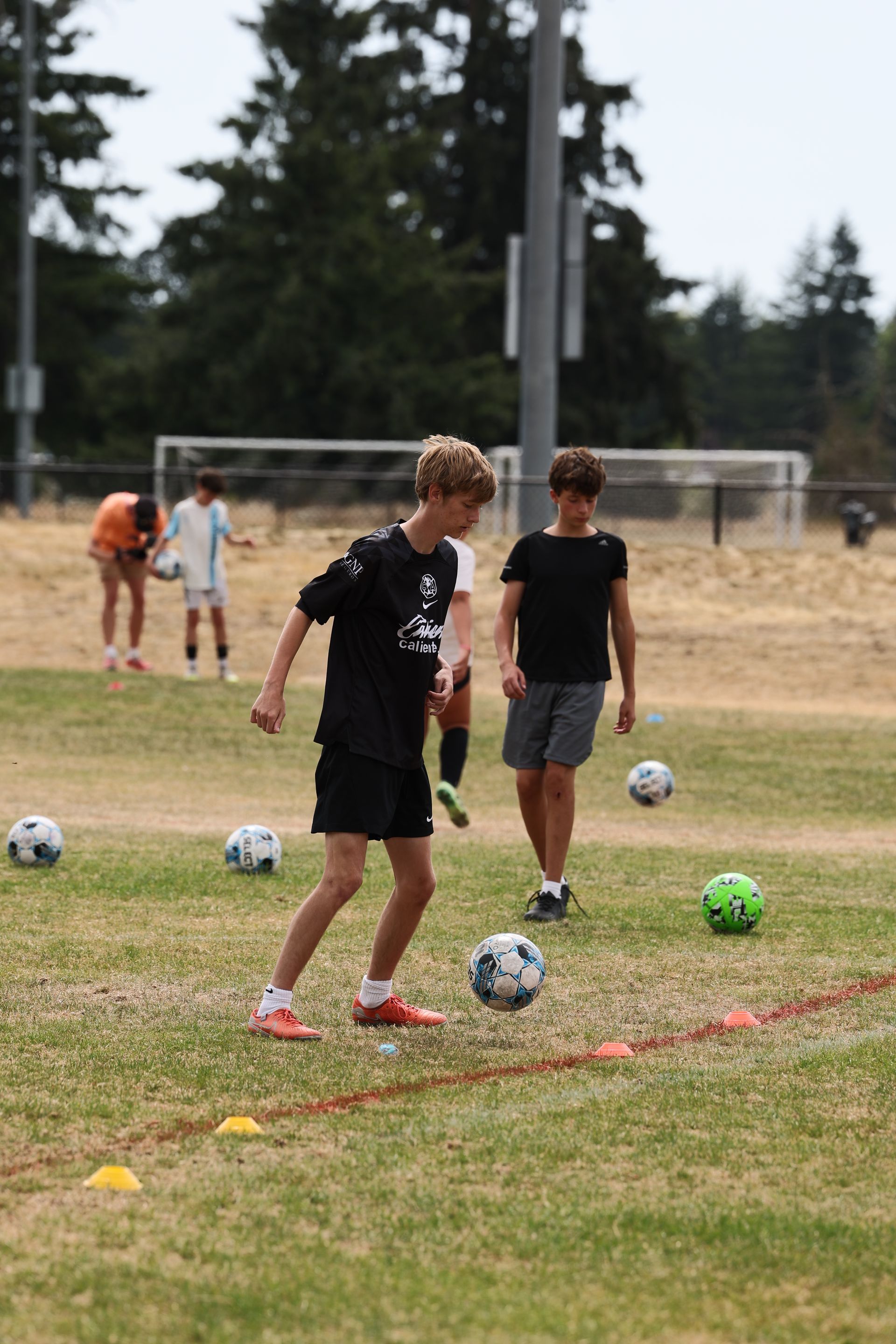
Trusting God’s Plan in a Competitive World
"Trust in the Lord with all your heart, and do not lean on your own understanding. In all your ways acknowledge Him, and He will make straight your paths." – Proverbs 3:5-6
In a world where competition drives so much of what athletes pursue, it’s easy to feel overwhelmed by pressure, comparison, and uncertainty. As a young Christian athlete, how do you compete with excellence without letting performance define you? How do you pursue your goals while remaining surrendered to God’s plan?
The answer is found in trust—not trust in your own ability, but in the faithful guidance of the God who sees your entire journey.
God’s Presence in the Pressure
Whether you’re preparing for a big game, navigating injury, or facing a benching season, God is with you. Matthew 28:20 says, "And surely I am with you always, to the very end of the age." This truth doesn’t change based on your performance. God’s presence is constant, even when the scoreboard isn’t in your favor.
When competition gets intense and expectations feel heavy, remember that your identity isn’t built on stats or titles. You are first and foremost a child of God.
"I can do all things through Christ who strengthens me." – Philippians 4:13
This verse isn’t a promise of victory in every game—but of strength to endure, courage to stand firm, and grace to trust God no matter the outcome.
Balancing Drive with Surrender
Ambition isn’t wrong. God gives us passion and purpose. But the danger comes when we let our goals override our faith. Psalm 37:5 encourages, “Commit your way to the Lord; trust in Him, and He will act.” Your job is obedience. God handles the results.
Let go of the pressure to be in control. Focus on faithfulness:
- Show up with integrity
- Train with discipline
- Play with joy
- Win with humility
- Lose with grace
When you commit your performance to God, every moment on the field becomes an act of worship.
Faith in the Unknown
You may not know where your athletic journey is going—what team you’ll make, what role you’ll play, or whether your hard work will lead to a scholarship or not. But faith means trusting God even when the path is unclear.
Hebrews 11:1 says, "Now faith is the assurance of things hoped for, the conviction of things not seen." That kind of faith allows you to play with peace, knowing that God’s plan is bigger than a season or a stat sheet.
God uses every part of your journey—wins, losses, setbacks, and breakthroughs—to shape your heart and grow your character. You can trust Him with the results.
Practical Ways to Trust God Daily
Just like you train your body, you can train your heart to trust God more deeply:
- Start each day with prayer, asking God to guide your thoughts, actions, and attitude.
- Memorize key Scriptures that remind you of your identity and His faithfulness.
- Journal your goals and surrender them, writing, “Lord, Your will be done.”
- Talk to a mentor or coach who shares your faith and can encourage you spiritually.
- Take time to rest. Trusting God includes knowing when to
pause and recharge.
These simple rhythms strengthen your spiritual muscles just like lifting weights builds strength.
Living for the Bigger Win
At the end of the day, trophies fade and highlight reels get old. But the way you reflect Christ through your athletic journey—that’s eternal.
"Whatever you do, work at it with all your heart, as working for the Lord, not for men." – Colossians 3:23
When you compete to glorify God, not yourself, every practice, every game, and every setback becomes part of a testimony that points to Jesus.
Whether you’re on the field or off it, let your life be evidence that you trust God—not just with your performance, but with your purpose.
Faith Check: Competing with Trust
- Where am I tempted to control outcomes instead of surrendering them to God?
- Do I believe that God’s plan is better—even when it doesn’t align with my expectations?
- How am I inviting God into my training, competition, and future?
Keep trusting Him. He’s writing a bigger story than you can imagine—and it’s one where your faith is the real victory.
Recent Articles












